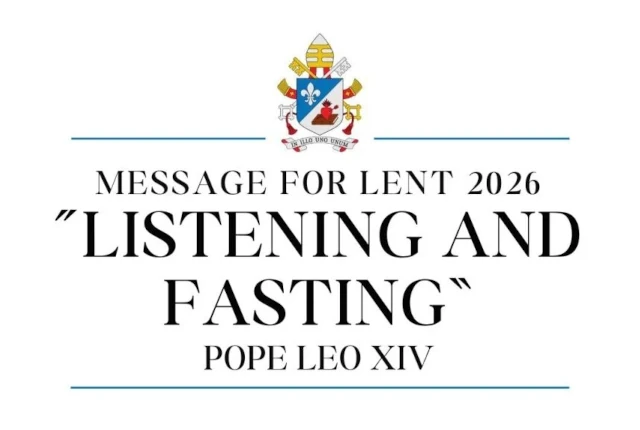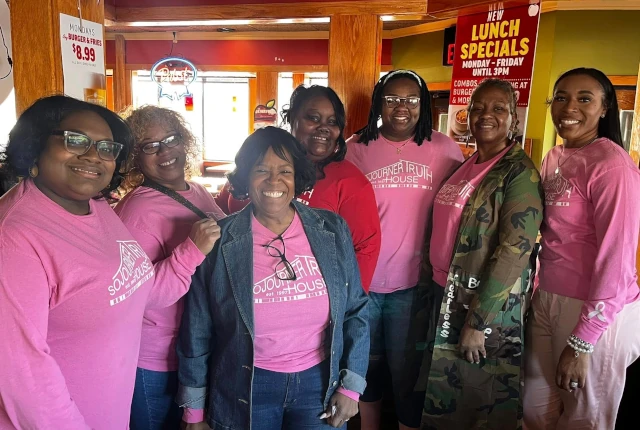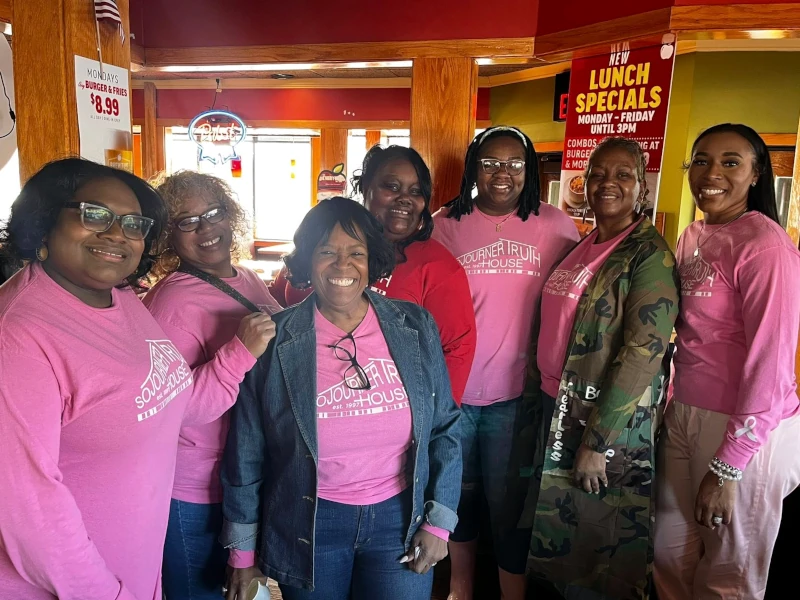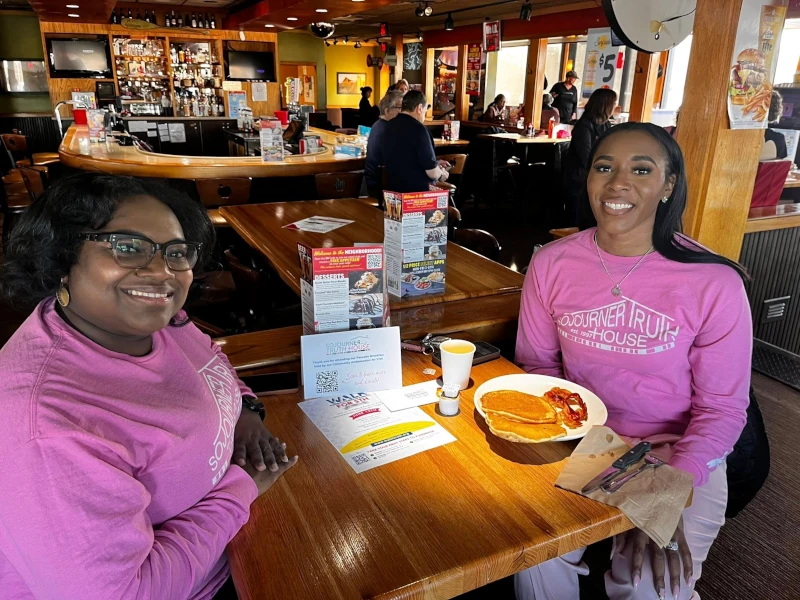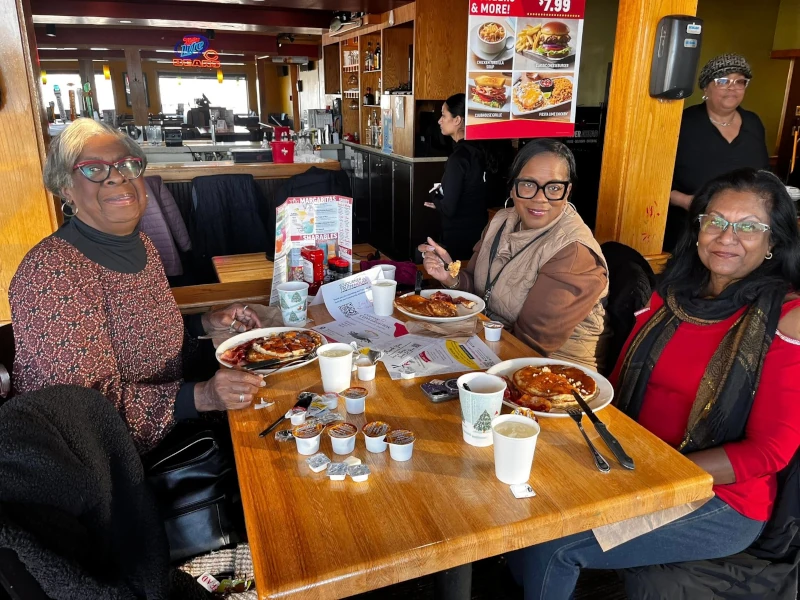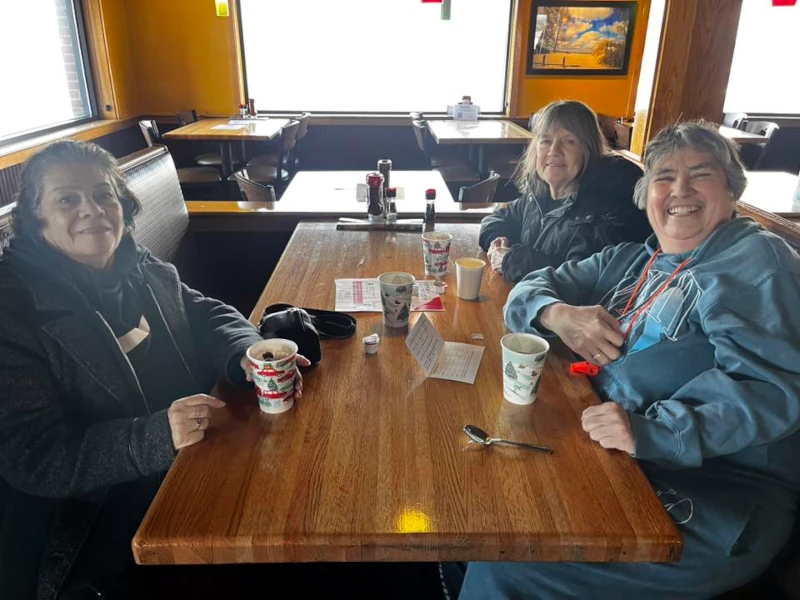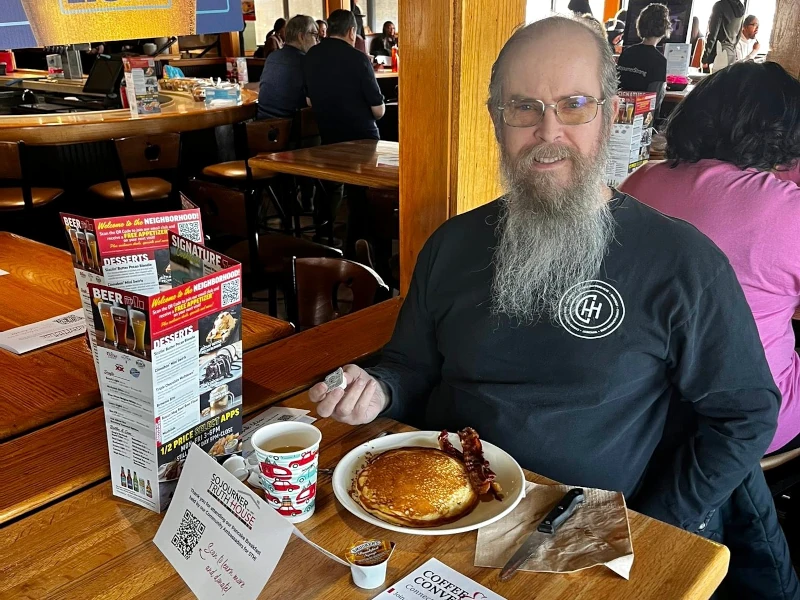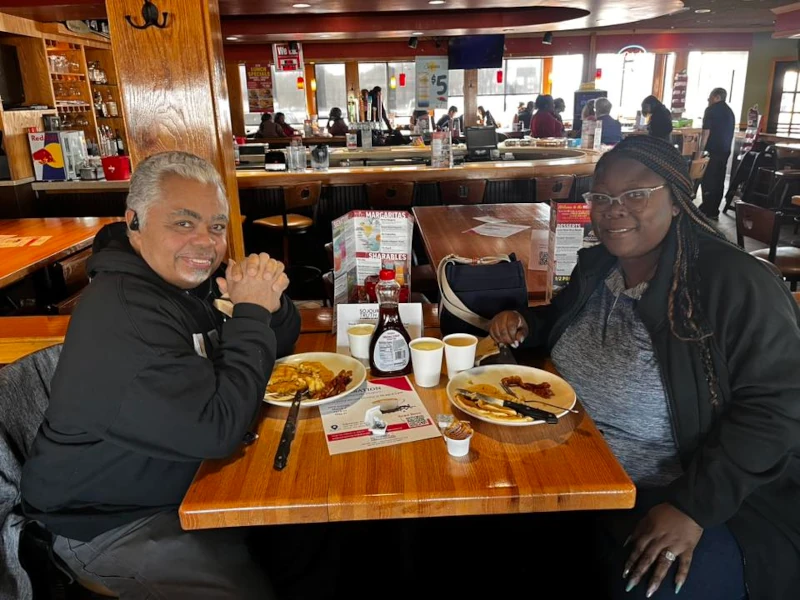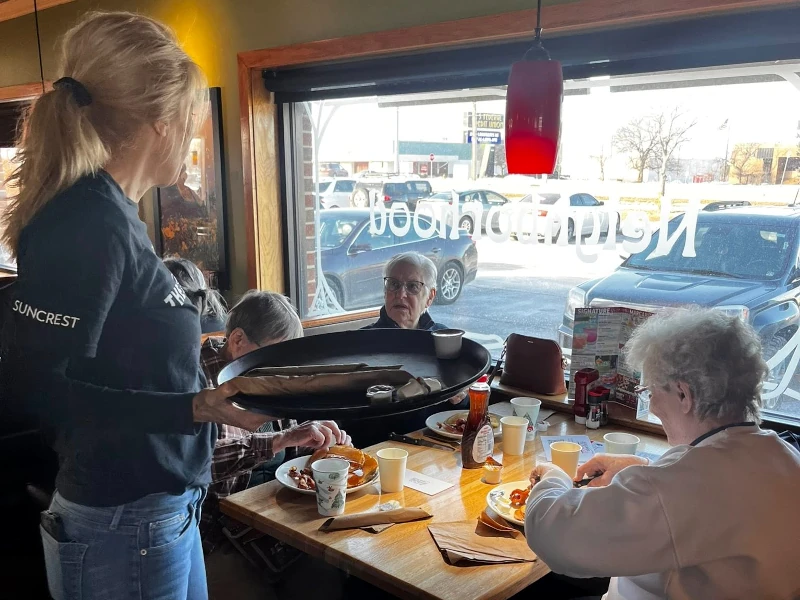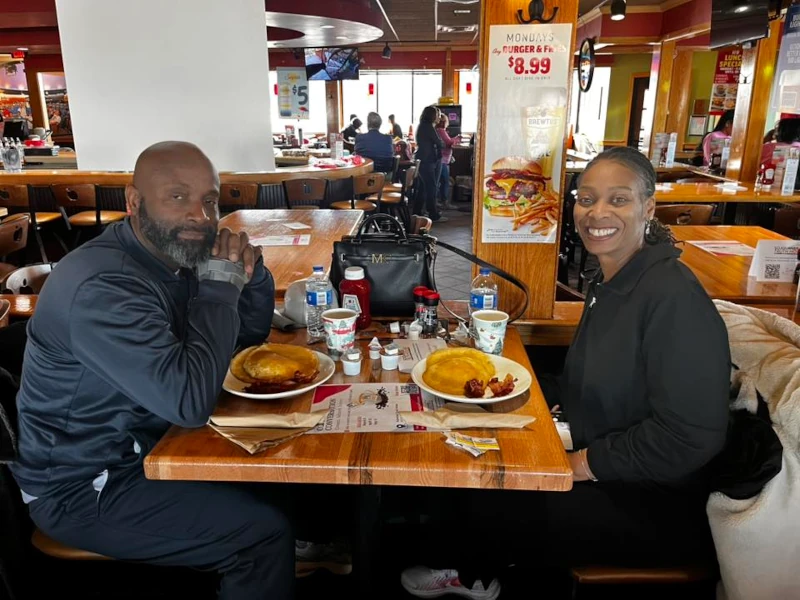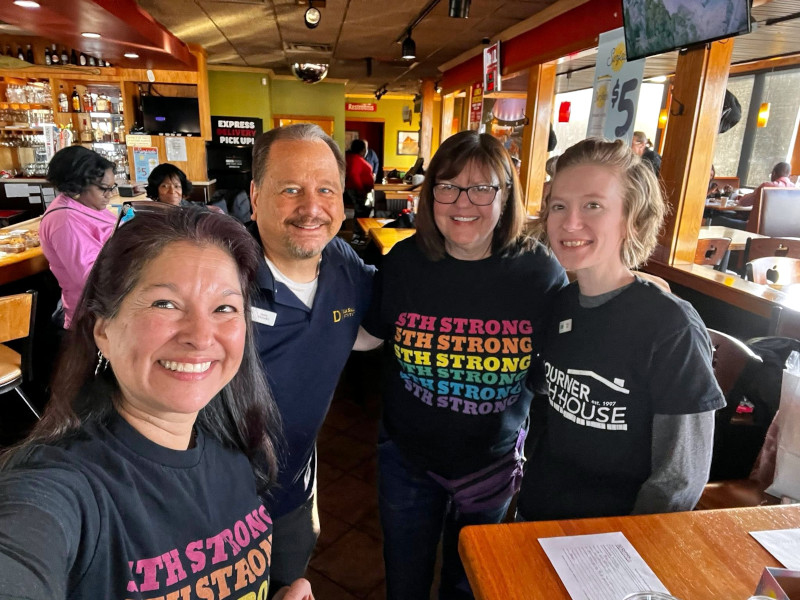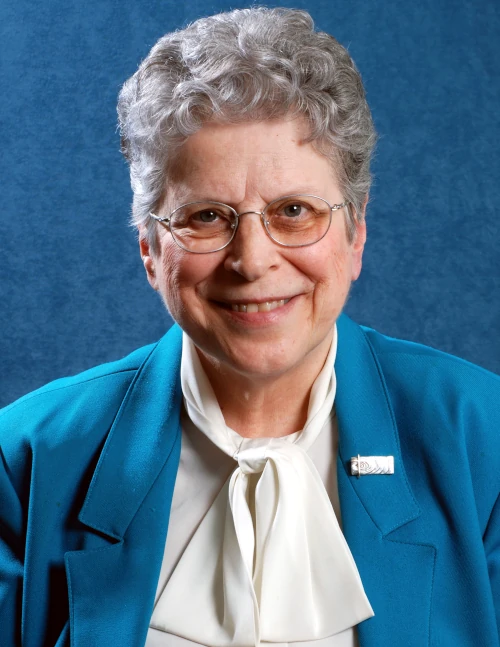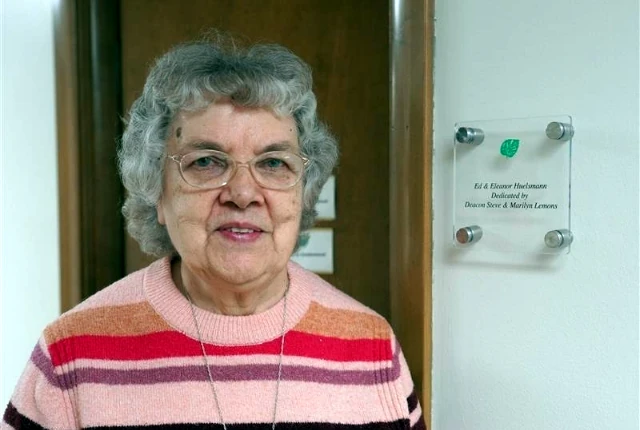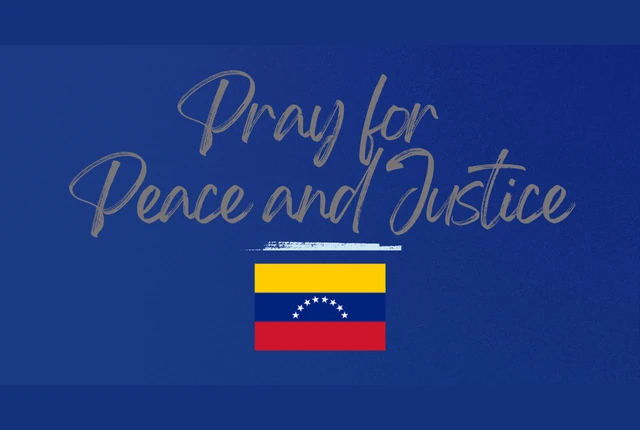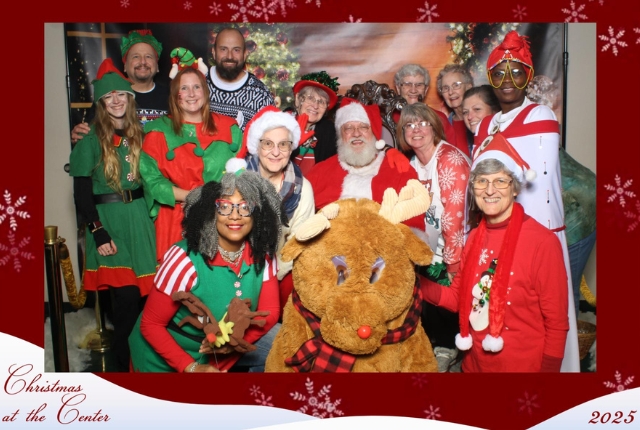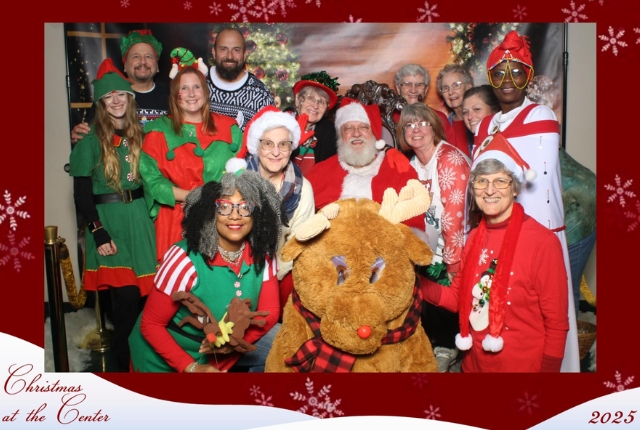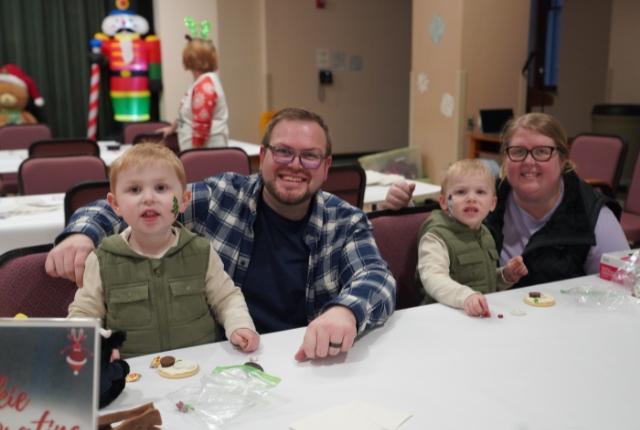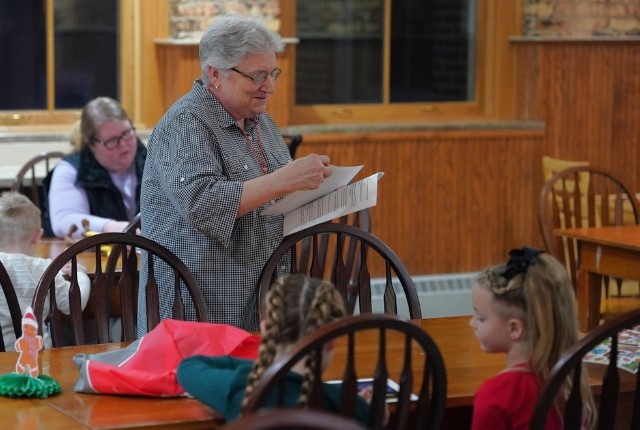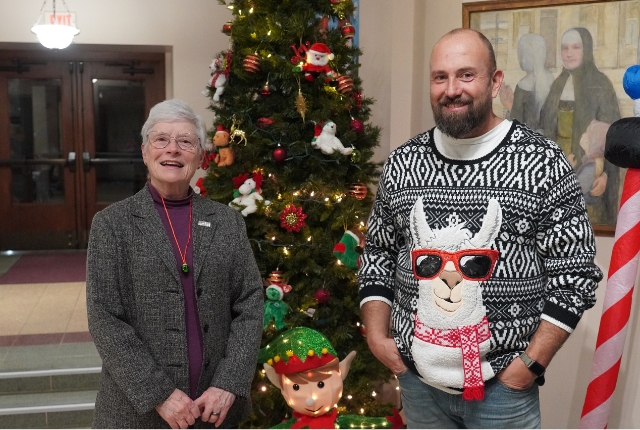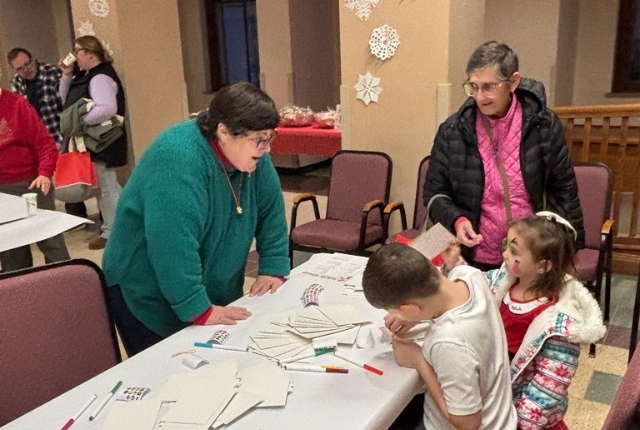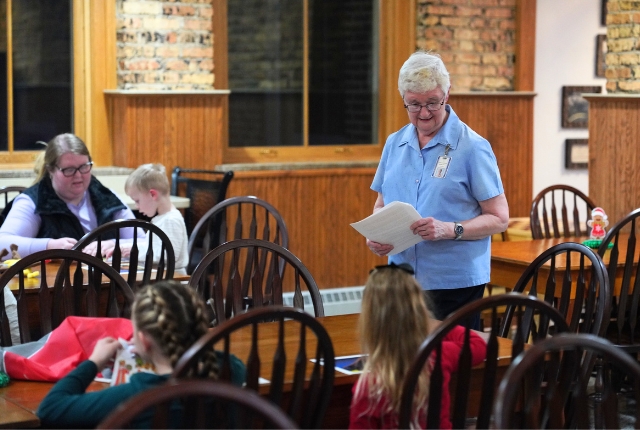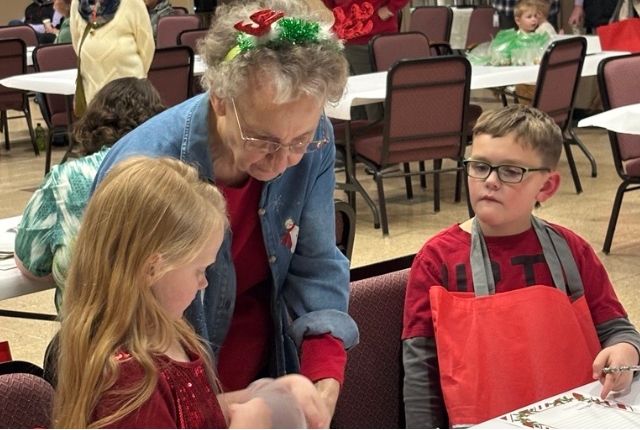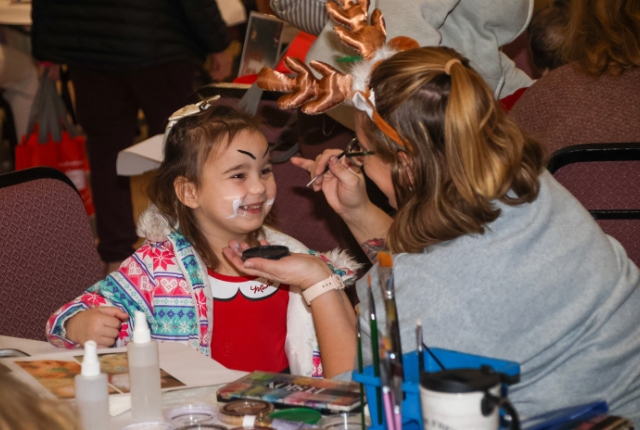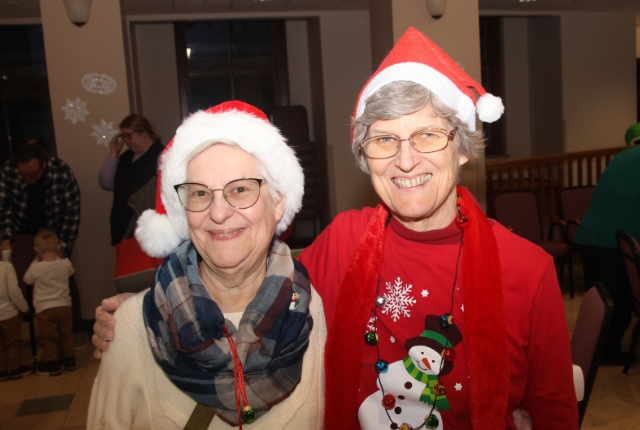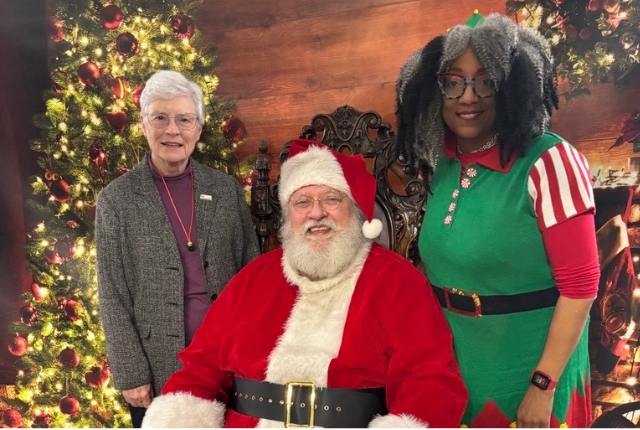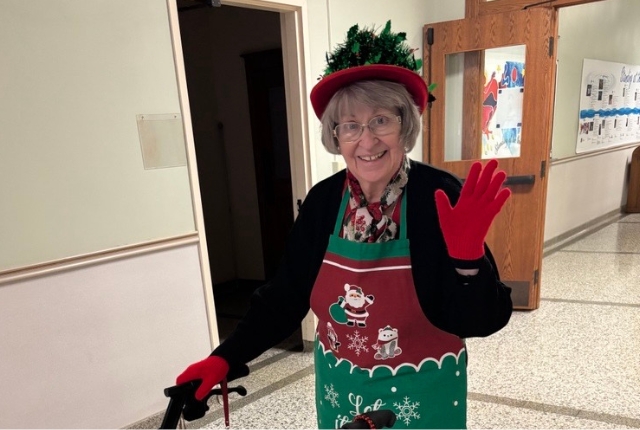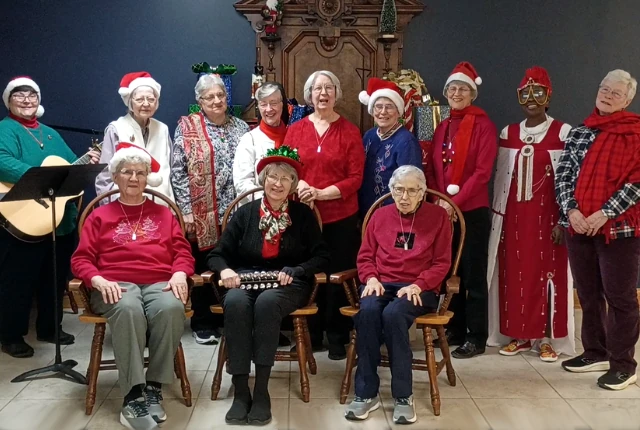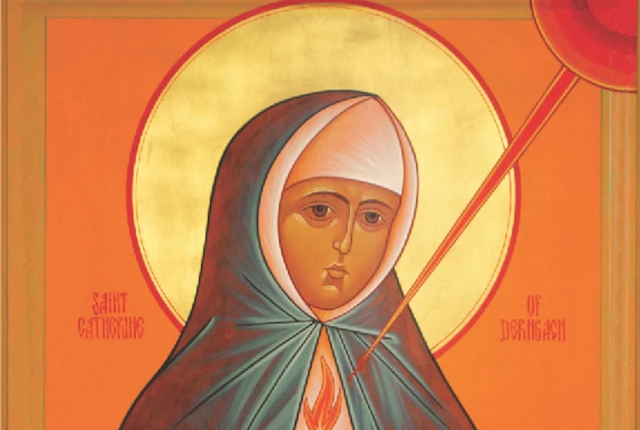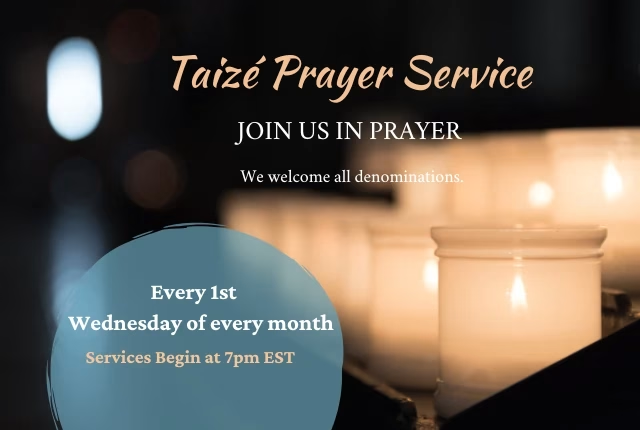July 9, 1930 – December 27, 2025
![]() Sister Joan Kathleen Fisher PHJC, (formerly Sister Colette), entered the final stage of her Life’s journey on earth and passed away at Catherine’s Cottage, Donaldson, IN on Saturday, December 27, 2025 at the age of 95. Her parents, Ellis Fisher and Catherine (Irle), welcomed two daughters, Joan Kathleen and Rosemary to their family. She is survived by her niece Kymm Ivy, and her nephews Robert Haber and Michael Haber. Sister Joan was born July 9, 1930 in Fort Wayne, IN. She was inspired by her early PHJC educators and knew she wanted to be a Sister, so she entered the Poor Handmaids of Jesus Christ Community in Donaldson, IN on November 21, 1948 and professed her first vows on June 25, 1951.
Sister Joan Kathleen Fisher PHJC, (formerly Sister Colette), entered the final stage of her Life’s journey on earth and passed away at Catherine’s Cottage, Donaldson, IN on Saturday, December 27, 2025 at the age of 95. Her parents, Ellis Fisher and Catherine (Irle), welcomed two daughters, Joan Kathleen and Rosemary to their family. She is survived by her niece Kymm Ivy, and her nephews Robert Haber and Michael Haber. Sister Joan was born July 9, 1930 in Fort Wayne, IN. She was inspired by her early PHJC educators and knew she wanted to be a Sister, so she entered the Poor Handmaids of Jesus Christ Community in Donaldson, IN on November 21, 1948 and professed her first vows on June 25, 1951.
Sister Joan’s life theme was to “Celebrate the Journey” and indeed she celebrated her life’s journey in many varied ways. Following her profession, she completed education at Alverno College (B.A.), Milwaukee, WI, St. Francis College (M.S.), Ft. Wayne, IN and obtained various certifications for Montessori Teacher and Parish Ministry. She ministered as an elementary teacher at St. Joseph School, Mishawaka, IN, St. Mary School, Trenton, IL, Angel Guardian Orphanage, Chicago, IL, and Our Lady of Perpetual Help School, Hammond, IN and as a Montessori teacher at St. Mary Parish, Fort Wayne, IN. It was in that last ministry she witnessed a close look at poverty experienced by inner city children. This opportunity opened a new journey to minister with the poor and marginalized as she learned that was where God was leading her heart and energy.
She was a staunch advocate for those most in need and instrumental in founding the Daystar Program in Cairo, IL in 1978. The Daystar program brought hope to the poor, the elderly and the disadvantaged and still continues today. In 1997, Sister Joan Fisher saw that the Gary, IN area needed a center to reach out to women and children experiencing homelessness. Along with Sister Peg Spindler, CSA, Sister Joan opened Sojourner Truth House (STH) in Gary to provide a safe and welcoming place for clients. Today the Sojourner Truth House ministry is thriving and is a village of hope that empowers women and children.
Sister Joan was also Director of the Poor Handmaid Associate Community from 1986-1992 sparking a wonderful beginning of a spiritual family of Saint Katharina Kasper.
In 2002 Sr. Joan moved to the Poor Handmaid Motherhouse to minister to her mother who then lived at Catherine Kasper Nursing Home. In 2006 Sister Joan was asked to become a member of the Catherine’s Cottage Supportive Community with other Poor Handmaid Sisters. Sister Joan’s “yes” to a new door in her life’s journey was a blessing to all members of the Cottage Community as she shared a beautiful smile, compassion, and her youthful spirit.
During her time at the Cottage Sister Joan continued outreach to the poor as she sewed clothes bags (lots of them!) and delivered them to the Women’s Care Center in Plymouth.
Sister Joan lived a life of joyful service and in her autobiography she wrote: “My life with its ups and downs is in fact a life centered in God whom I am getting to see…and rejoice and sing and love Him with all my heart as He loves me.”
VISITATION & WAKE SERVICE
Monday, January 12, 2026
Catherine Kasper Convent Chapel
Donaldson, IN
4:30 p.m. EST – Visitation
7:00 p.m. EST – Wake Service
MASS OF RESURRECTION
Tuesday, January 13, 2026
Catherine Kasper Convent Chapel
Donaldson, IN
10:00 a.m. EST – Visitation
10:30 a.m. EST – Funeral
The Mass of Christian Burial will be livestreamed at poorhandmaids.org/live. Memorial contributions may be made at poorhandmaids.org.

